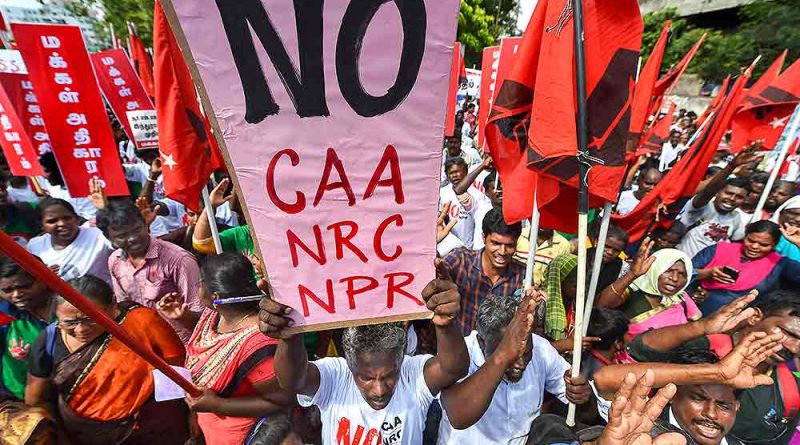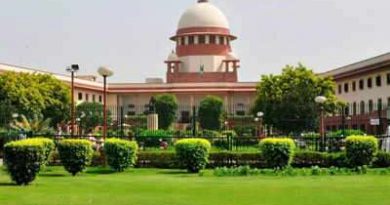| |
|---|
Debjit Mukherjee: A total of 1,739 Citizenship Certificates have been granted by the Ministry of Home Affairs in nine states and 31 districts to foreigners under the provisions of the Citizenship Act last year.

The ministry’s annual report for 2022-23 from April 1, 2022 to December 31, 2022 shows the certificates were granted by various competent authorities – MHA and authorities delegated powers of the Central government in the nine states and 31 districts.
“Of 1,739, 1,386 were granted by Registration under Section 5 and 353 were granted by Naturalization under Section 6 of the Citizenship Act, 1955,” the ministry said.
The report also said that an online portal for processing of applications for Resumption of Indian Citizenship under Section 8 (2) of the Citizenship Act, 1955 has been launched by the National Informatics Centre (NIC) on December 8, 2022. “Processing of all Citizenship applications has been made paperless on October 15, 2019 and end to end processing is being done electronically,” it added.
According to the report, the Citizenship (Amendment) Act, 2019 (CAA) was notified on December 12, 2019 and came into force on January 10, 2020.
“It aims to facilitate grant of citizenship to migrants belonging to Hindu, Sikh, Buddhist, Jain, Parsi or Christian communities from Afghanistan, Bangladesh or Pakistan who had come to India on or before December 31, 2014 and who had been exempted by the Central government by or under clause (c) of sub-section (2) of section 3 of the Passport (entry into India) Act, 1920 or from the application of the provisions of the Foreigners Act, 1946 or any rule or order made there under,” the report said.
The report also said the CAA is a focused legislation which seeks to provide a relaxation to aforesaid specific communities from the specified countries with a clear cut-off date.
“It is a compassionate and ameliorative legislation. The CAA does not apply to Indian citizens. Therefore, it does not in any way take away or abridge the rights of any Indian citizen. Further, the present legal process of acquiring Indian citizenship by any foreigner of any category as provided in the Citizenship Act is very much operational and the CAA does not amend or alter this legal position in any manner whatsoever. Hence, legal migrants of any religion from any country will continue to get Indian citizenship once they fulfil the eligibility conditions already provided in the law for registration or naturalization,” the report added.
The annual report also said that the Constitution of India has provided special provisions under Sixth Schedule to grant protection to tribal and indigenous people of the North-Eastern region. “CAA has excluded areas under Sixth Schedule of the Constitution and areas covered by Inner Line Permit system under Bengal Eastern Frontier Regulation. Hence, CAA does not affect the protection granted by the Constitution to indigenous population of North Eastern States,” it states.
The report also said that a gazette notification was issued by the MHA on October 31, 2022, for delegating powers of the Central government for registration as a citizen of India under Section 5 or for grant of certificate of Naturalization under Section 6 of the Citizenship Act, 1955 in respect of any person belonging to specified minority community; Hindu, Sikh, Buddhist, Jain, Parsi and Christian in Afghanistan, Bangladesh or Pakistan, to Collectors of two more Districts; Anand, and Mehsana of Gujarat.
“With this, now collectors of 31 districts and home secretaries of nine states have been delegated powers of the Central government to grant citizenship in respect of the specified communities,” the report said.




